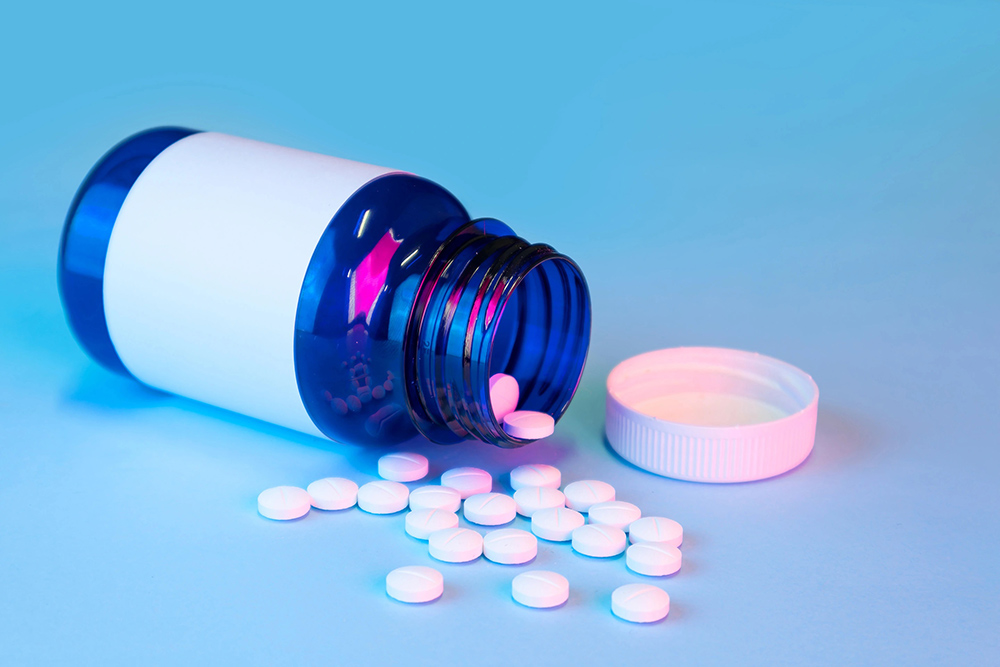
褪黑素又被称为睡眠激素,会自然地向人体发送信号,告诉人体需要休息。天黑之后,褪黑素水平最高,清晨太阳升起时水平最低。有三分之一美国人表示,失眠对其日常生活产生了负面影响,因此许多人为了更快睡着,会定期服用胶囊、软糖或液体褪黑素补充剂。
南加州大学(University of Southern California)肺病、重症护理和睡眠医学专家拉吉·达斯古普塔博士对《财富》杂志表示,虽然褪黑素对睡眠并非必不可少,但“如果大脑正常分泌褪黑素,睡眠质量就会更好。”
但褪黑素补充剂对人体和大脑到底有什么影响?
我们调快生物钟
褪黑素是大脑中部的松果体自然分泌的一种物质,有助于调节生理节律或人体生物钟。成年人倒时差或上夜班时服用褪黑素补充剂,可以向身体发出信号,告诉人体应该在新的时间休息。
达斯古普塔表示:“服用褪黑素补充剂的目的是,为人体补充这种在不同时间自然分泌的激素,从而帮助调整生物节律。”
褪黑素可以帮助成年人更快入睡,并延长睡眠时间甚至提高睡眠质量,或者进入快速眼动睡眠期或深度睡眠的能力。
我们可能服用过量
联邦食品药品管理局(FDA)将褪黑素指定为一种成年人膳食补充剂,因此关于服用量或服用时间没有具体的规定。睡眠科学家通常建议成年人服用1至5毫克,但药店出售的所有褪黑素品牌并非都有明确的剂量标志,有些品牌建议的服用剂量甚至高于标签标记的剂量。褪黑素服用过量会引发头痛、呕吐甚至血压变化。
我们可能经历副作用
达斯古普塔表示,人体会自然分泌褪黑素,因此才会很少有关于褪黑素补充剂副作用的警告。
不过,他表示,人们可能会感觉白天嗜睡、头痛、头晕和肠胃不适。他表示如果症状持续或者加重,应该立即就诊。
成年人短期服用褪黑素通常不会对人体产生伤害,但关于哪些情况下适合长期使用褪黑素,并没有太多指导意见。达斯古普塔表示,在连续服用1至2个月后,专家建议应停止使用,以评估人体不服用膳食补充剂时的表现,以及是否还需要睡眠干预。
我们可能在心理上依赖褪黑素
专家建议通过认知行为疗法和健康的睡前放松作息(睡前减少使用电子产品,保持室内光线黑暗、温度适宜等),治疗失眠。达斯古普塔表示,对于成年人来说,仅褪黑素“并不是非常有效的睡眠辅助措施”,因此有人质疑褪黑素的任何积极效果,都只是安慰剂效应。
如果我们认为褪黑素补充剂有助于提升睡眠质量,我们可能被诱导持续服用,变得“在心理上依赖”褪黑素。罗格斯新泽西医学院(Rutgers New Jersey Medical School)药物毒性与成瘾药物系主任刘易斯·S·尼尔森博士之前曾告诉《财富》杂志,与上瘾不同,对褪黑素的心理依赖并不会像其他药物一样,对人体产生伤害,因为褪黑素补充剂不会“产生与[已知]毒品有关的精神愉悦或快感”。然而,如果人们对褪黑素产生心理上的依赖,一旦停用可能会感到焦虑。
我们可能认为褪黑素引发了噩梦
有人可能认为褪黑素与更多噩梦或做梦有关,尤其是临近凌晨的时候。达斯古普塔表示,褪黑素可以延长睡眠持续时间,因此会“间接”延长快速眼动睡眠期或深度睡眠时间,而这时候我们就会做梦或做噩梦。
他说道:“做更多逼真的梦,可能让你感觉褪黑素是导致你做梦的直接原因。”
睡眠持续时间和质量非常重要,而短期服用褪黑素结合其他睡眠养生方法,可以帮助成年人进行一次达斯古普塔认为的“限时试验”。(财富中文网)
翻译:刘进龙
审校:汪皓
褪黑素又被称为睡眠激素,会自然地向人体发送信号,告诉人体需要休息。天黑之后,褪黑素水平最高,清晨太阳升起时水平最低。有三分之一美国人表示,失眠对其日常生活产生了负面影响,因此许多人为了更快睡着,会定期服用胶囊、软糖或液体褪黑素补充剂。
南加州大学(University of Southern California)肺病、重症护理和睡眠医学专家拉吉·达斯古普塔博士对《财富》杂志表示,虽然褪黑素对睡眠并非必不可少,但“如果大脑正常分泌褪黑素,睡眠质量就会更好。”
但褪黑素补充剂对人体和大脑到底有什么影响?
我们调快生物钟
褪黑素是大脑中部的松果体自然分泌的一种物质,有助于调节生理节律或人体生物钟。成年人倒时差或上夜班时服用褪黑素补充剂,可以向身体发出信号,告诉人体应该在新的时间休息。
达斯古普塔表示:“服用褪黑素补充剂的目的是,为人体补充这种在不同时间自然分泌的激素,从而帮助调整生物节律。”
褪黑素可以帮助成年人更快入睡,并延长睡眠时间甚至提高睡眠质量,或者进入快速眼动睡眠期或深度睡眠的能力。
我们可能服用过量
联邦食品药品管理局(FDA)将褪黑素指定为一种成年人膳食补充剂,因此关于服用量或服用时间没有具体的规定。睡眠科学家通常建议成年人服用1至5毫克,但药店出售的所有褪黑素品牌并非都有明确的剂量标志,有些品牌建议的服用剂量甚至高于标签标记的剂量。褪黑素服用过量会引发头痛、呕吐甚至血压变化。
我们可能经历副作用
达斯古普塔表示,人体会自然分泌褪黑素,因此才会很少有关于褪黑素补充剂副作用的警告。
不过,他表示,人们可能会感觉白天嗜睡、头痛、头晕和肠胃不适。他表示如果症状持续或者加重,应该立即就诊。
成年人短期服用褪黑素通常不会对人体产生伤害,但关于哪些情况下适合长期使用褪黑素,并没有太多指导意见。达斯古普塔表示,在连续服用1至2个月后,专家建议应停止使用,以评估人体不服用膳食补充剂时的表现,以及是否还需要睡眠干预。
我们可能在心理上依赖褪黑素
专家建议通过认知行为疗法和健康的睡前放松作息(睡前减少使用电子产品,保持室内光线黑暗、温度适宜等),治疗失眠。达斯古普塔表示,对于成年人来说,仅褪黑素“并不是非常有效的睡眠辅助措施”,因此有人质疑褪黑素的任何积极效果,都只是安慰剂效应。
如果我们认为褪黑素补充剂有助于提升睡眠质量,我们可能被诱导持续服用,变得“在心理上依赖”褪黑素。罗格斯新泽西医学院(Rutgers New Jersey Medical School)药物毒性与成瘾药物系主任刘易斯·S·尼尔森博士之前曾告诉《财富》杂志,与上瘾不同,对褪黑素的心理依赖并不会像其他药物一样,对人体产生伤害,因为褪黑素补充剂不会“产生与[已知]毒品有关的精神愉悦或快感”。然而,如果人们对褪黑素产生心理上的依赖,一旦停用可能会感到焦虑。
我们可能认为褪黑素引发了噩梦
有人可能认为褪黑素与更多噩梦或做梦有关,尤其是临近凌晨的时候。达斯古普塔表示,褪黑素可以延长睡眠持续时间,因此会“间接”延长快速眼动睡眠期或深度睡眠时间,而这时候我们就会做梦或做噩梦。
他说道:“做更多逼真的梦,可能让你感觉褪黑素是导致你做梦的直接原因。”
睡眠持续时间和质量非常重要,而短期服用褪黑素结合其他睡眠养生方法,可以帮助成年人进行一次达斯古普塔认为的“限时试验”。(财富中文网)
翻译:刘进龙
审校:汪皓
Melatonin—the sleep hormone—naturally signals to our bodies that it’s time for rest. The hormone’s levels are highest at night as it gets darker, and lowest in the morning when the sun rises. One in three Americans say insomnia negatively impacts their day-to-day lives, leading many to routinely take melatonin supplements in the form of capsules, gummies, or liquids with the hopes of hitting the hay faster.
Although it’s not essential for sleep, “you definitely sleep better when your brain secretes melatonin appropriately,” Dr. Raj Dasgupta, a pulmonary, critical care, and sleep medicine specialist at the University of Southern California, tells Fortune.
But what are melatonin supplements actually doing to our bodies and brains?
We push up our body block
Melatonin is naturally released from the pineal gland, located in the middle of the brain and helps regulate the circadian rhythm, or the body’s internal clock. When adults take a melatonin supplement, potentially to combat jet lag or a night shift, it can signal to the body that it’s time for rest at a new time.
“What you’re doing is trying to give your body that hormone that’s naturally released anyway at a different time, to help you shift your circadian rhythm,” Dasgupta says.
Melatonin may help adults fall asleep faster, and therefore increase duration of sleep and potentially sleep quality, or the ability to fall into REM or deep sleep.
We may be taking too much
The FDA classifies melatonin as a dietary supplement for adults so there aren’t specific regulations on how much to take or for how long. Sleep scientists generally recommend between one and five milligrams for adults, yet not all brands of melatonin sold over the counter have clear dosage markers, and some may even be higher than what the label says. Taking too much melatonin can cause headaches, vomiting, and even changes in blood pressure.
We may have side effects
The hormone naturally occurs in our body, which is why there are few warnings about the side effects of the supplement, Dasgupta says.
Still, people may feel daytime sleepiness, headache, dizziness, and upset stomach, he says, noting that if the symptoms persist or are more than mild to see a health care provider.
Short-term melatonin use in adults is generally harmless, but there’s limited guidance when it comes to long-term use. After one to two months of routine use, experts recommend weaning off it to see how you fare without the supplement and whether you need further sleep interventions, Dasgupta says.
We can become psychologically dependent
Experts recommend cognitive behavioral therapy and a healthy wind-down routine (limiting screens before bed and being in dark, cool spaces) for treating insomnia. Melatonin alone “is not a very potent sleep aid” for adults, Dasgupta says, leading some to speculate that any positive results from melatonin are a placebo effect.
So if we perceive that the melatonin supplement aids our sleep quality, we can become enticed to keep taking it—becoming “psychologically dependent” on it. Unlike an addiction, this mental draw to melatonin doesn’t cause the same harm that other drugs might, because the supplement doesn’t “cause the euphoria or pleasure associated with substances [known for] getting high,” Dr. Lewis S. Nelson, director of the division of medical toxicology and addiction medicine at Rutgers New Jersey Medical School, previously told Fortune. However, someone who is psychologically dependent on it may feel anxious if they can’t access it.
We may assume melatonin causes our nightmares
Some also associate melatonin with increased nightmares or dreaming, especially closer to the morning. Melatonin may increase the duration of sleep, and therefore “indirectly” increase the amount of time you spend in REM, or deep sleep, which is when we have dreams and nightmares, Dasgupta says.
“By having more vivid dreams, it might make you feel like melatonin is the direct cause of those dreams,” he says.
Sleep duration and quality is imperative, and melatonin use in the short term may help adults in what Dasgupta deems a “time-limited trial,” alongside other sleep regimens.






